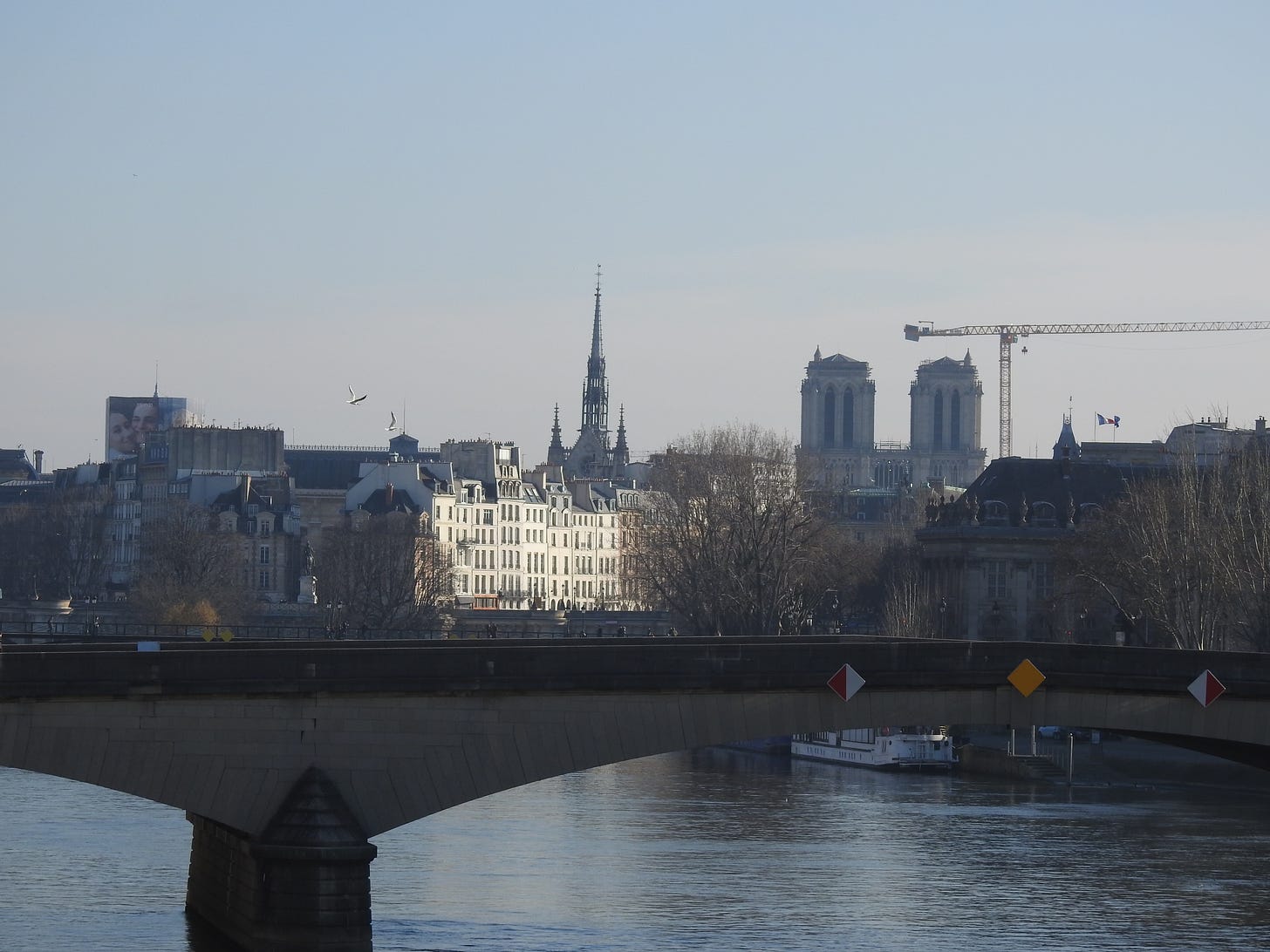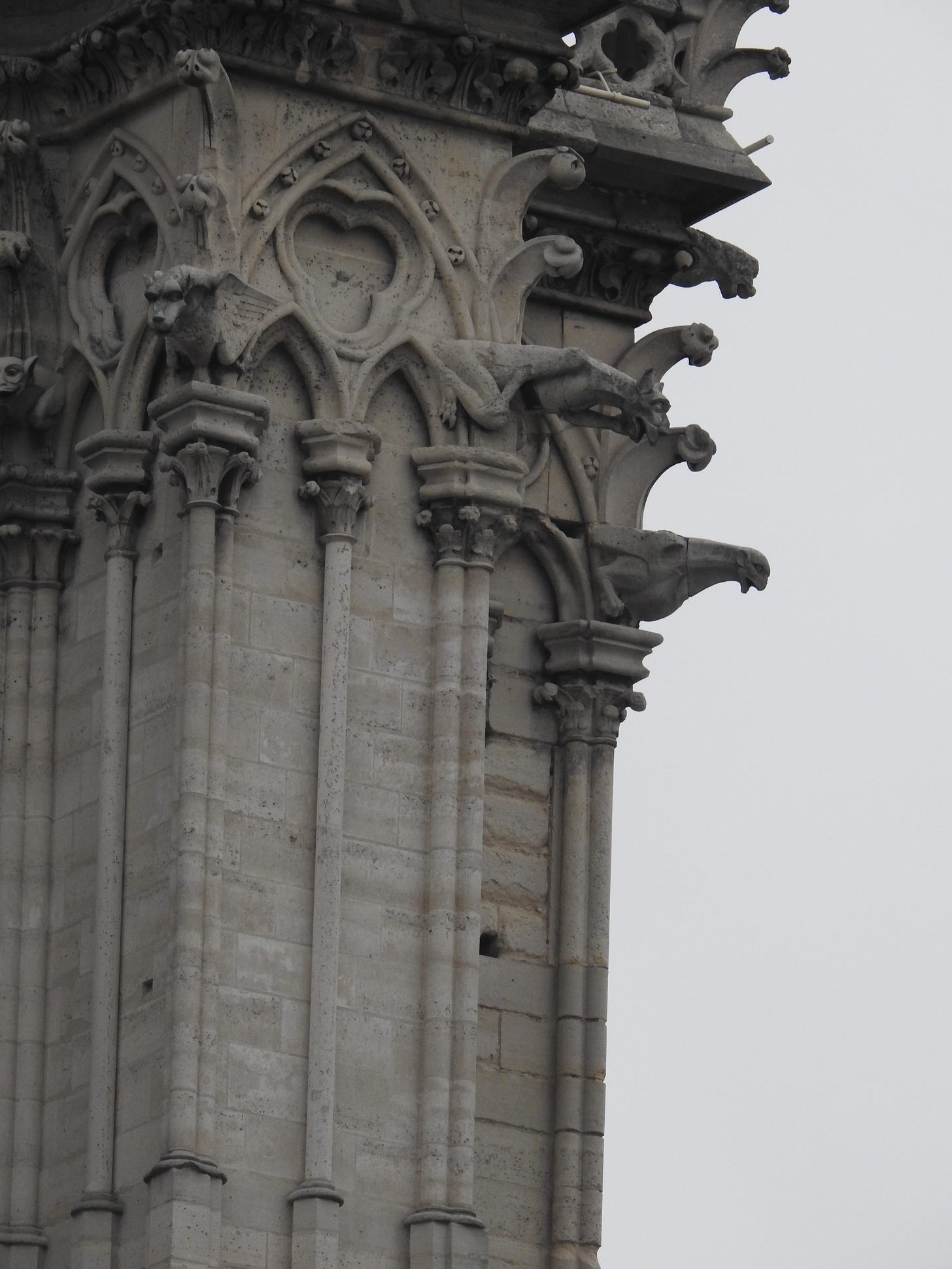Notre-Dame Cathedral re-opens to the public on 8 December 2024
Bells ring, calling the public back to Notre-Dame Cathedral after the 2019 fire …
The Notre-Dame Cathedral fire on 15 April 2019 was devastating. Fire, smoke, and water extensively damaged the cathedral, the spire fell, and the roof collapsed.
On 8 November 2024 the bells of Notre-Dame rang for the first time since the fire, celebrating the intention to re-open its doors and to test the sound of three new bells, including the bell used during the Paris 2024 Olympic and Paralympic Games. All eight bells chimed for five minutes starting at 10:30 am. The heaviest bell, given the name “Gabriel” weighs over four tonnes and the lightest weighs 800 kilograms.
Public donations added to the government’s budget to restore the cathedral – raising 846 million euros. A law passed in July 2019 stipulated that the money collected through the national Notre-Dame renovation campaign could only be used to finance conservation and restoration work on Notre-Dame. Phase 1 involved work to prevent the shell of the building from collapsing completely to make it safe for renovators, and Phase 2 involved the renovations. Approximately 700 million euros was spent on these two phases. There is a surplus of 146 million euros which will be used for Phase 3 of renovations commencing in 2025, which was already planned before the fire. This will include restoration of the facades, the roof of the sacristy, the flying buttresses, and the choir. Therefore, the cathedral’s façade will be covered in scaffolding for 2-3 years during the renovations, until about 2027.
After five years of restoration, Notre-Dame Cathedral re-opens to the public on 8 December 2024. Before the fire, the cathedral welcomed about 12 million visitors annually. This figure is expected to rise to 14-15 million.
The French culture minister Rachida Dati suggested charging a small (maybe 5 euro) entrance fee to raise further funds to preserve the cathedral’s heritage and add to the restoration coffers of other heritage religious institutions across France. France has about 42,000 Catholic churches (60 of them are communual cathedrals), of which 8,000 have been restored since 2019. The Notre-Dame visitor fee would be for cultural visits only (people attending mass or other services will not be charged a fee – it will remain free). Before the fire, visitors paid 8.50 euros to climb the 387 steps to access the panoramic view of Paris and to have a close-up view of the cathedral’s famous gargoyles.
The Notre-Dame Cathedral in the 4th arrondissement of Paris is centrally located on the Island of the City and looms large next to the river Seine. Because of its long history of construction from 1163 to 1345, followed by ongoing renovations, with many supervising architects, the architectural style varies from primitive Gothic to radiant Gothic. Gothic nonetheless. The current renovations (2019-2024) replicated the cathedral before the fire, deploying hundreds of artisans across France.
French author Victor Hugo (1802-1885), noted for his novels The Hunchback of Notre Dame(1831) and Les Miserables (1862), lived in Paris from 1832 at the age of thirty to 1851 before his exile to the island of Guernsey. The fictional hunchback of Victor Hugo’s novel, Quasimodo, found sanctuary in the Notre-Dame Cathedral and loved the gargoyles and the panoramic view of Paris. The public thought that the deformed Quasimodo was a monster and a mob rampaged the cathedral. Soldiers repelled the mob and Quasimodo was saved, but the love of his life, Esmeralda, had a tragic fate. Quasimodo left Notre-Dame, never to return.
Photographer: Martina Nicolls
Can’t see the whole article? Want to view the original article? Want to view more articles? Go to Martina’s Substack: The Stories in You and Me
More Paris articles are in my Paris website The Paris Residences of James Joyce







